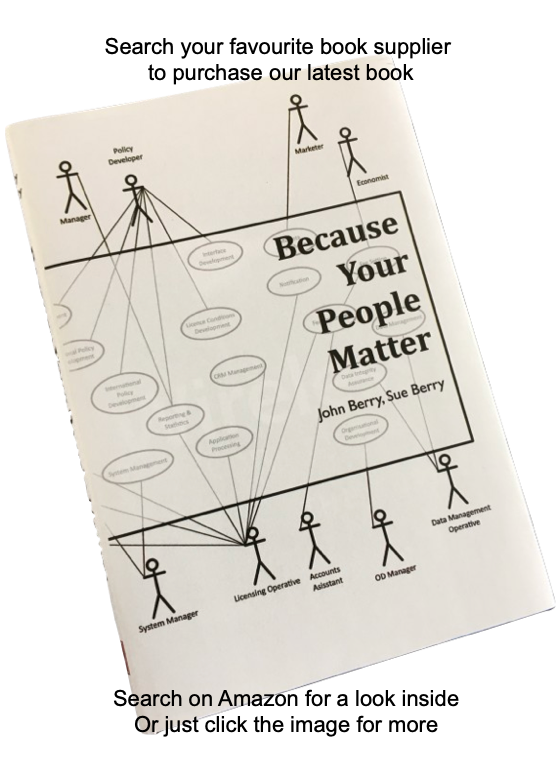Stealing at work: a one way street?
Stealing at work: a one way street?
Written by Sue Berry on 5th May 2017. Revised 25th March 2020.
6 min read
 Stealing at work: a one way street?For some managers stealing in the workplace is black and white. Consider the following scenario which occurred recently. A disgruntled employee was extremely upset following discussions with his manager. From the employee’s point of view a general discussion turned into an accusation that he had been stealing from the company. It was suggested that by using a company pen to sign a personal birthday card and write the address on the envelope the individual was stealing from the company. And this was said in all seriousness by the manager.
Stealing at work: a one way street?For some managers stealing in the workplace is black and white. Consider the following scenario which occurred recently. A disgruntled employee was extremely upset following discussions with his manager. From the employee’s point of view a general discussion turned into an accusation that he had been stealing from the company. It was suggested that by using a company pen to sign a personal birthday card and write the address on the envelope the individual was stealing from the company. And this was said in all seriousness by the manager.
So was it stealing? Was using a company pen for personal use theft of company assets or just part of the give-and-take of employment? It all depends on your viewpoint and where you draw the line.
This article tries to define stealing and looks at the issue from both employer and employee viewpoint. It ends by giving some practical recommendations to managers to control the issue.
According to an article in the Daily Mail on 7th September 2009 eighty percent of the population think it is acceptable to steal from work. We are not talking major fraud here, rather the odd pen, paper, staples and the like. The research conducted by Dr Stefan Fafinski and Dr Emily Finch[1] was concerned with the general public’s view of dishonest behaviour.
Defining stealing
 Stealing is the taking of something to which you have no rights. An employee steals when he takes anything that is owned by the employer with the intention of using it for something not connected with the employer’s business.
Stealing is the taking of something to which you have no rights. An employee steals when he takes anything that is owned by the employer with the intention of using it for something not connected with the employer’s business.
Stealing goes further than simply taking objects. Time can also be stolen. Examples of theft include coming back late from lunch, signing in for 9am but arriving at 9.05, claiming expenses for items not related to work, or claiming a car parking ticket (for which there is no receipt).
If we take the definition literally, all but the most careful employees will steal every week. The definition must involve a measure of severity, a limit of tolerance. Step over the line and disciplinary action will result. But where does management draw the line?
Stealing from the employee
So far this article has considered employees stealing from their employer. Let’s now turn the tables. Many employers also steal from their employees.
Many job descriptions and contracts of employment state that the individual must work the hours necessary to meet the requirement of the role. This bland statement infers that additional hours over and above the normal (say 37.5) hours are expected, and such hours will not (on the whole) be recompensed. Some employees are contracted for 37.5 hours but it inevitably takes and extra 10 minutes at the beginning and end of each day to pack away and lock up. How is this any different to the employee pinching 5 minutes here and there? How does one balance the two? On the one hand there’s maybe an open-ended contractual commitment and on the other a hard and fast rule yet both dealing with the same issue – the taking of time from one party by another.
So where do we look to help make sense of this apparently petty yet often complex offence of stealing? We must look beyond the basic facts and look at expectations of employers and employees.
Psychological contract
Theft by the employee and employer is framed by implied relationships.
David Guest[2], a writer on the psychological contract, suggests that these relationships are informal and imprecise. They are certainly not written down and they are informed in part by expectation. Both parties expect fairness. When fairness happens, staff willingly give their service over and above the documented hours. They act creatively and innovatively to add value to the employer’s business. However, where this is not perceived to be happening, the employee may take steps to redress the fairness – an odd pen or ream of paper, the occasional five minutes taken in lieu of many extra hours worked.
The psychological contract is real. It exists in the minds of the employer and employee. If it is imbalanced, tension results. If the employee steals (taking the literal definition above), disciplinary action results. And conversely, if the employer is seen to be stealing, the employee takes action.
Quite quickly the relationship can deteriorate causing major issues for the employer. All employers need to consider how they manage their staff. They have to decide if “police” or “polite” people management methods are to be used. They need to decide how hard-nosed to be – but beware; the employee has a potential equal and opposite reaction.
Managing in the 21st Century
If we accept the argument that there is a line to be drawn and if we accept that there’s a psychological contract that is informed by expectation on both sides, then somehow we need to build that expectation to solve the problem of stealing. Managers need to inform their staff above and beyond what’s written in job descriptions, contracts of employment and staff handbooks. They need to draw the line.
In signalling what is and is not acceptable, managers need to be sensitive to the psychological contract. The best way to do this is to discuss stealing with staff in a team-briefing meeting. State what is acceptable. Say where the line is for both parties. And keep notes of the meeting so that you can prove later if necessary that you have told everyone what is expected of them. Do make sure that the discussions acknowledge the two-way nature of theft and that in return for a degree of tolerance, management will ask for cooperation.
The odd pen disappearing from the stationary cupboard is unlikely to break the stationary budget but clearing the cupboard systematically to sell at a car boot sale may be evidence of a deeper problem that needs tackling. Say where the line is to be drawn.
Stealing at work: a one way street?
How you choose to manage the relationship with staff will affect profitability. Every time somebody steals something the firm loses profit, every time somebody decides they won’t go the extra mile the firm loses profit. Every time someone becomes disillusioned the firm loses profit.
The psychological contract is real. It is vitally important that relationships with your staff are built on fairness and trust on both sides. Like any relationship, management need to work at it to make sure both they and their employees understand what each expects of the other.
TimelessTime has extensive experience in monitoring and managing theft in the workplace and in the bigger issues of the psychological contract. Contact us now to discuss!
- Dr. Stefan Fafinski and Dr. Emily Finch are criminal lawyers and social scientists at Brunel Law School.
- Guest, D E & Conway, N (2002) Pressure at work and the psychological contract. London, CIPD